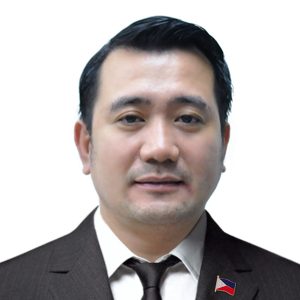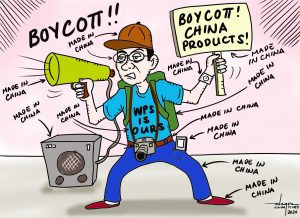
IN THE annals of the universities, the discussion on public policy is a common place. By itself, public policy takes concern on how the public represent their values and concerns, hence, it refers to the population and the policy as a course of action to guide the people. In effect, public policy is everything that pertains to the government’s action or inaction. It includes protection from disaster, food sufficiency, incentives and bonuses, transportation, and everything that involves the public. The public policy takes into account the requirement of specificity, communicability, appropriateness of authority, and resource deployment. It means that when a policy is introduced, it requires a specific and targeted group for implementation of the beneficiary, it is well-communicated, and its powers are exercised by appropriate authorities.
However, the volatility and complexity of the world, and the uncertainty and ambiguity of the society are the grand forces that push the process of policy to enter the period of modernization. Surprisingly, policies and policy-making modernization happened in 1999 in the United Kingdom during the regime of PM Tony Blair. Then it spread like a wildfire in all of the modest and reasonable governments of the world.
The dynamic global community is uncertain, complex, unpredictable, inasmuch, the citizens demand more from their governments stylized services owing to bigger and wider information access, in the name of transparency, between the governed and the government. All these put the traditional intuition-oriented and rule of thumb policy making on their knees.
The policy-making for it to be modernized need to demonstrate the features of forward-looking, outward-looking, innovative, flexible and creative, evidence-based, inclusive, integrated, evaluative, review capability, and learns lessons.
Thus, it can be said that policy-making is as much political. The understanding of politics that I wish to present here is different from the ordinary politics that commonly referred into. Politics here is the exercise of authority to ensure order for the common good and distribute values. Public policy therefore becomes an ex-post facto of the nature of politics of a government.
When a government exercises its power, it defines its own agenda, understands and seeks solutions to problems, decides on the course of action, distributes power, pursues policies, monitors and evaluates impacts of policies. All these are political actions on the one hand, and public policy on the other. The economic models that are implemented in the world economies are results of politics and public policies.
Some of these models include elite theory which concentrates powers on the few and the privileged, the pluralist which require coming together for a common struggle, the corporatist theory which prospered in Southeast Asia like the Chaebols in South Korea, Conglomerates of Malaysia, Amalgamation of Taiwan, and the Kereitsu of Japan.
Along these lines, and very prominently is the resounding of the systems theory that is expected to be comprehensive, incrementalist, institutional-oriented. More so, policies should reflect the benefits to recipient, the types of goods affected, and the scope and context of the policy.
Policies are nothing but letters and texts without the policy instrument, or the manner by which policy intentions are fulfilled. The instruments include fiscal approach similar to spending, taxation, subsidies, incentives; and restrictive mechanisms such as sanctions; and other behavior-modifying approaches like marketing and promotions. Policy instruments can move freely from being persuasive or hortatory to coercive.
Now, we could move to no end to the discussion of policy, politics and policy-making, but my point here is that, all instruments of the law and the policies by which they came from must always be towards one effective goal. The goal of ensuring the protection and welfare of everyone, especially those who are marginalized and have less in life.
Adrian Tamayo is the head of the Public Relations of the Mindanao Development Authority (MinDA). He teaches economics at the Graduate School of the University of Mindanao and is currently on a scholarship grant for a Master of Public Safety Administration (MPSA) at the Philippine Public Safety College (PPSC).

